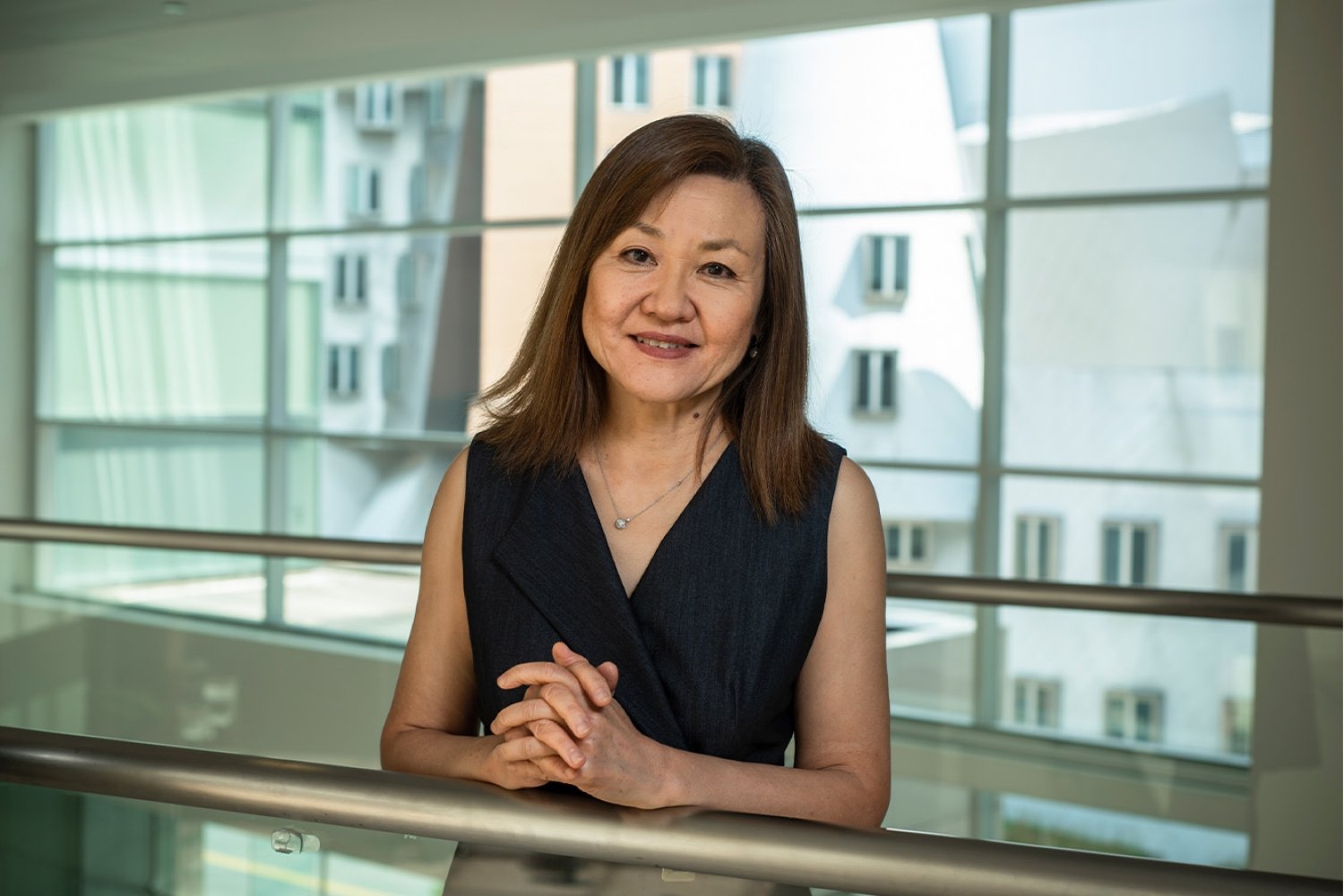All the single ladies are voting for Kamala
Unmarried women make up a whopping 25% of the electorate. That's bad news for Donald Trump.
Kiersten Essenpreis for BI
Soon after former President Donald Trump selected Sen. JD Vance to be his running mate in July, the Ohio senator's 2021 comment about "childless cat ladies" recirculated and set off a social-media firestorm. America, he said, was being run by "a bunch of childless cat ladies who are miserable at their own lives" and who "want to make the rest of the country miserable, too."
Women were quick to respond: Jennifer Aniston, who has talked openly about having fertility struggles, pushed back on social media. Taylor Swift flipped the language on its head, signing off her endorsement of Vice President Kamala Harris with "Childless Cat Lady" beside a photo of Swift and her cat, Benjamin Button. Meghan McCain, a daughter of the late Sen. John McCain, said in a social-media post that the comment displayed an "insensitivity and cruelty to women." But Vance's crass comment, he later said, was driven less by a concern about women's personal lifestyle choices than by an anxiety about the growing influence that single women wield in American society. On that front, he's not wrong: In just a few years, single women have become a largely united voting bloc, casting votes overwhelmingly for Democrats.
Part of the shift is demographic: Over the past few decades, the number of single women in America has skyrocketed. In 2023, there were 43 million single women living in the US, a 55% increase since 2000. An analysis last year from the Pew Research Center found that one-quarter of all 40-year-olds in 2021 had never been married, up from just 6% in 1980. Single women are older, more educated, and more financially independent than they were a generation earlier. And they are motivated to vote. In 2000, 48% of single women reported voting. In 2020, that jumped to a record 61%. According to the political data firm Catalist, single women now make up one-quarter of the electorate. (Single men, on the other hand, make up 19%).
But demographics don't explain why this voting bloc has become so critical to Democrats' success. In a 2023 Pew survey, more than seven in 10 single women identified as a Democrat or leaned Democratic, compared with 45% of married women. In 2020, single women accounted for nearly one-third of Joe Biden voters. When Harris took over the ticket, her support among single women swelled. In June, before she became the Democratic nominee, less than half of single women in a YouGov poll reported having a favorable impression of her. By September, that jumped to nearly two-thirds. And her support is growing: A recent Ipsos survey found Harris leading among single women voters by nearly 40 points.
Conservatives have started to recognize the growing problem for their party. When 2022 exit polls found that unmarried women overwhelmingly backed Democrats, the Fox News personality Jesse Watters said: "Single women and voters under 40 have been captured by Democrats. So we need these ladies to get married." On the other side of the coin, Democrats are taking advantage of their newfound momentum, seeking to cultivate support among single women by more vigorously advocating for women's issues and abortion rights. The 2024 election is poised to further entrench a growing political gender divide.
When the Supreme Court overturned Roe v. Wade in 2022, it shattered the uneasy status quo of abortion politics. The Dobbs decision put Republicans firmly on the defensive, mobilized pro-choice voters, and transformed the political landscape. Abortion became a call to action for many women, especially single women. Shortly before the 2022 midterm elections, 54% of single women in a poll my team at the Survey Center on American Life conducted said abortion was a critical priority.
In a 2020 Gallup survey, 21% of single women said they could not support a candidate who did not share their views on abortion; this year, that jumped to 35%. The General Social Survey has found that Americans across the board have become more supportive of access to abortion in any circumstance, but the shift among single women has been especially dramatic. In its 2022 survey, two-thirds of single women said that abortion should be available for any reason, a view held by less than half of single women a decade earlier. While men have also become more supportive of abortion, they haven't shifted nearly as much as single women.
It's no coincidence that the Harris campaign is emphatic in its support for abortion and reproductive rights, most recently proposing the elimination of the filibuster to pass federal legislation legalizing abortion. Unlike Biden, Harris has approached the issue more directly and unapologetically. To underscore the political power of single women, Trump — after previously refusing to answer the question — recently said that if elected, he would veto a national abortion ban.
Earlier this year, I wrote about the growing political divide between young men and women and how the gap began to form in the wake of the #MeToo movement. As celebrities, whistleblowers, and regular women felt emboldened to speak out about their sexual mistreatment, women gained a sense of solidarity with each other. A 28-year-old woman interviewed by the Pew Research Center in 2022 about her support for #MeToo said: "I feel it's good for people to know they aren't alone and there are a lot of people out there that have gone through the same things they may have."
The cultivation of shared experiences, especially online, helps explain why so many unmarried women believe that what happens to other women in the US has a direct bearing on their own lives, a phenomenon referred to as "linked fate." In a 2022 Survey Center on American Life study, 63% of single women said that in all ways or in most ways, what happens to other women in the US affects their own lives.
This newfound alliance has thrived even as gender inequality and sexual misconduct have persisted. A 2020 Pew Research Center study found a dramatic uptick in the number of incidents of sexual harassment on social media young women reported. More than one in three young women reported being stalked, called a derogatory name, or threatened. In a 2023 study my team conducted, four in 10 single women said they had received unsolicited sexual images.
For single women who increasingly believe the status quo is intolerable, the promise of a new direction voiced by a candidate who says she understands their struggles is a critical part of her appeal.
In the wake of #MeToo, more women have reported feeling afraid of becoming a victim of sexual assault, a fear that is felt more acutely among unmarried women. In a 2023 Gallup survey, nearly four in 10 single women reported that they frequently worried about being sexually assaulted or raped. Only 16% of married women said the same.
These fears gain more weight considering that being single is no longer a temporary stage for many women — it's a permanent lifestyle for many. With the average age of first marriages continuing to climb, even women who end up married or in long-term partnerships now spend more time living and working on their own. Issues such as childcare, wage gaps, and protections for women become even more important when you're building a life without a partner.
More than anything, what defines the politics of single women is the growing unease they feel about women's place in American society. For most of the past two decades, women felt largely content with their treatment in the US. That all changed after Trump's election and the #MeToo movement. Less than half of women in a 2021 Gallup survey said they felt satisfied about the way women were treated in American society, a historical low. Single women were the least satisfied.
The combined feelings of connectedness and discontent have critical political implications. The belief that women across America face similar struggles fosters a sense of solidarity that research has found can spur political engagement.
In one way, the Democrats got lucky with Harris. Even though single women typically support Democrats, they were not overly enthusiastic about Biden's candidacy. But poll after poll has found that single women have become strongly supportive of Harris.
While she has downplayed the historic nature of her candidacy, the possibility of electing the first female president is important to single women voters, which could explain the surge in support for Harris. In a new poll by my team at the Survey Center on American Life, 60% of single women voters said the election of a female president was "very important." Far fewer married women voters, 43%, shared this view. But even if Harris has been circumspect about the issue of gender, her campaign has engaged in extensive outreach to women's groups, such as Win With Black Women, Alpha Kappa Alpha Sorority, and She the People. She also recently appeared on the hit podcast "Call Her Daddy," which is extremely popular among Gen Z women.
Harris can do something that Biden never could: convince Americans that she represents a break from the past. Biden, an 81-year-old white guy who has been in politics for half a century, was always going to have a difficult time making the case that he's an agent of change — especially among single women. Even if Harris has not diverged much from Biden on the issues, voters are more likely to believe she represents change. And for single women who increasingly believe the status quo is intolerable, the promise of a new direction voiced by a candidate who says she understands their struggles is a critical part of her appeal.
For now, Republicans seem more intent on appealing to young men than to single women. The Trump campaign recently ran ads in key swing states criticizing Gov. Tim Walz, Harris' running mate, for raising taxes on Zyn, a tobacco-free nicotine pouch popular with young men. Another ad featured Jake Paul, a YouTuber who has a large following of young men, criticizing Harris. In a close election, every group of voters is important, but if Harris maintains her lead among single women, it could provide her with a critical path to victory.
Daniel Cox is director of the Survey Center on American Life and research fellow in polling and public opinion at the American Enterprise Institute.
What's Your Reaction?
















